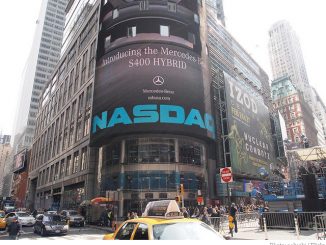- Dan Niles expects solid Nvidia (NVDA) earnings but is more focused on an impending “AI digestion phase” by midyear, driven by Microsoft’s signals of slowing CapEx growth from 50-60% to mid-teens revenue pace as supply balances demand by June.
- He highlights Microsoft’s CEO anticipating excess capacity to lease by 2027-2028 and notes the market’s dip reflects IR clarifications, suggesting Nvidia’s bullish outlook lags behind customers like Microsoft (MSFT) who dictate demand trends.
- Niles debunks Oracle’s CapEx doubling hype – $13.7 billion next fiscal year actually implies a sequential spending drop – underscoring how superficial analysis misses the broader AI spending slowdown he foresees impacting Nvidia’s ecosystem.

Dan Niles, Dan Niles, founder and portfolio manager of Niles Investment Management, appeared on CNBC’s ‘Squawk on the Street’ to discuss his perspective on Nvidia’s (NVDA) upcoming earnings, emphasizing the broader AI spending outlook over immediate results. He anticipates Nvidia will report strong earnings and that CEO Jensen Huang will provide an optimistic long-term forecast, but Niles places greater importance on Microsoft’s actions, noting the company’s CEO mentioned on a podcast plans to lease excess capacity by 2027-2028, suggesting an oversupply that could reduce computing costs and lead to an “AI digestion phase” by midyear. Niles highlights Microsoft’s investor relations clarification in Australia, stating supply and demand will align by June, their fiscal year-end, with CapEx growth slowing from 50-60% to mid-teens revenue levels, a shift reflected in today’s market decline and Microsoft’s stock performance, reinforcing his view that semiconductor companies like Nvidia react to customer demand trends set by leaders like Microsoft.
Niles also addressed spending patterns among the ‘Mag 7’ tech giants – Meta (META), Google (GOOG), Amazon (AMZN), and Oracle (ORCL) – noting their significant AI investments but questioning the optimism surrounding them. He pointed to Oracle’s announced CapEx doubling to $13.7 billion for its next fiscal year, ending May, which appears impressive until calculations reveal that, with half the year elapsed, the remaining $7.5 billion falls short of the $8 billion implied by doubling their latest $4 billion quarter, indicating a sequential decline. Niles critiques the superficial analysis that overlooks such details, a practice he avoids by focusing on the data, which he believes is validated by Microsoft’s current pullback and supports his expectation of a broader AI spending slowdown that will overshadow Nvidia’s earnings narrative.
WallStreetPit does not provide investment advice. All rights reserved.
- Bulenox: Get 45% to 91% OFF ... Use Discount Code: UNO
- Risk Our Money Not Yours | Get 50% to 90% OFF ... Use Discount Code: MMBVBKSM
Disclaimer: This page contains affiliate links. If you choose to make a purchase after clicking a link, we may receive a commission at no additional cost to you. Thank you for your support!





Leave a Reply